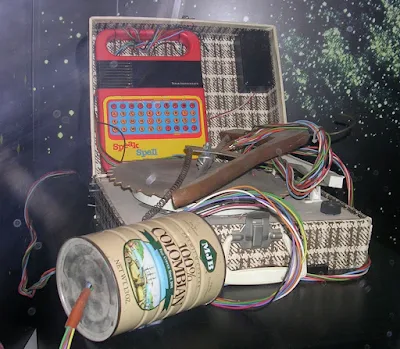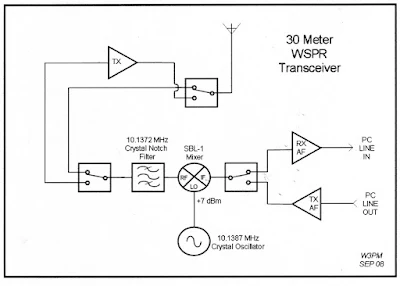 Jeff, Ko7M, travels around in this very cool Piper Cub. He has floats for it so he can land on water. He sometimes listens to SolderSmoke as he flies. Which brings us to his second Cub:
Jeff, Ko7M, travels around in this very cool Piper Cub. He has floats for it so he can land on water. He sometimes listens to SolderSmoke as he flies. Which brings us to his second Cub:
KO7M has built his first QRP rig!
Well... I have been systematically listening to every soldersmoke episode from the beginning... Not a small task... :) I am currently up to episode 80, so I am closing in on the prize of being current.
BUT!! You have completely afflicted me with the need to build something... Most of my ham life however I have been mostly an appliance operator it seems though I built a lot of tube equipment in my younger years, burned a lot of fingers and once launched myself across the shack when I took hold of a 750 volt plate circuit.
Therefore, I am not up to the task of designing something from scratch, but ya know... I just HAD to build something and NOW, so I went with a kit. So, not exactly knack-ish but ya gotta start somewhere, eh?
I went with the little QRP transceiver from MFJ called the "MFJ Cub". I picked up a 40 metre version of this little gem, plugged in my MP3 player with my current episode of soldersmoke and started GENERATING solder smoke! This little kit went together very easily during moments when I had a few minutes to work on it.
Well, this evening (it is now 01:00 PST) I finished up with my last little bit of solder smoke generation and the little rig is done. Now for the REAL smoke test...
Since I don't have a current limiting power supply, I went with a little nine-volt battery for the smoke test. The little power LED lit up and I heard a pop in the headset, nothing was getting warm, so things looked good. We went to the full 12 volt supply and I went through the alignment process by first setting the product detector's operating frequency to fall within the CW filter passband. I then used my Icom receiver to set the VFO operating range since I don't have a frequency counter. I then peaked the receiver bandpass filter for best sensitivity and lastly set the BFO to the correct sideband.
For the transmitter, I first set the carrier offset to about 600 hz from the received signal and peaked the transmitter bandpass filter for maximum RF output. I only have a simple SWR bridge for indicating a relative output level forward and reverse. Lastly, I set the power output level to about what I estimate should be about one watt.
Whoo hoo! Pulled off the dummy load and plugged in the G5RV and antenna tuner and started tuning around the low end of 40 metres and there were signals everywhere. Nice receiver in this rig. The tuning is a little fast, but managable. Seems to be very sensitive. I happened to catch the end of a CQ call as I was scanning around the band and when he signed I gave him a call.
To my complete surprise, he came back to me and gave me a 459 report... From Japan! I bagged a JA1 on my first QSO on a rig I built myself (or at least assembled). There is nothing better, I tell ya! I attached a screen shot of the Solar Flux level for my first QSO.
So... I am afraid to say you have reinstilled the need to melt solder in me after an absence of over 30 years. It is a disease I tell ya! I have located copies of both Solid State Design and Experimental Methods, which are both on the way and I am eagerly looking forward to figuring out what the next project will be.
The knack is returning...
Kind regards,
Jeff Whitlatch - ko7m










